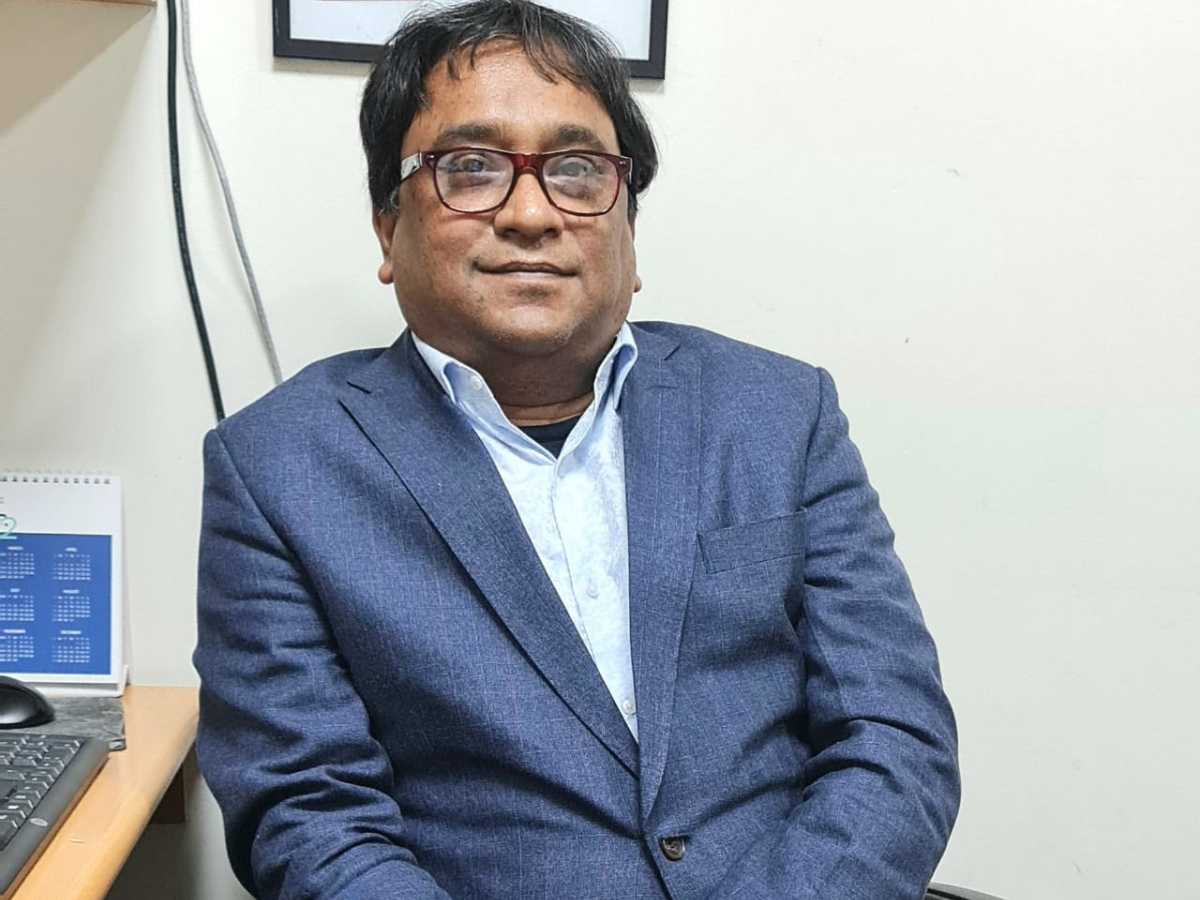
Dr Kishalay Datta, Max Super Speciality Hospital
As pollution levels continue to pose a significant health hazard in cities like Delhi, concerns regarding respiratory health have become paramount.
Dr Kishalay Datta, Director of Emergency Medicine and Trauma at Max Super Speciality Hospital, talked to Patriot about the critical respiratory issues arising from prolonged exposure to high pollution levels, offering valuable perspectives on potential impacts and preventive measures.
The average Air Quality Index (AQI) for November was recorded at 373 this year with nine days of “severe” quality, 17 days of “very poor” and four days of “poor” air quality.
Q: What are the primary respiratory health concerns arising from prolonged exposure to high levels of pollution, particularly in areas like Delhi?
A: Prolonged exposure to elevated pollution levels in cities like Delhi raises significant concerns regarding respiratory health. The intricate mix of particulate matter, volatile organic compounds, and other pollutants in the air can lead to various respiratory issues. Individuals often experience persistent breathing difficulties, a chronic and persistent cough, including low-grade cough, irritation leading to redness and congestion of the eyes, and an increased production of sputum in the respiratory tract.
Q: Have you noticed any specific patterns or changes in the types or severity of respiratory illnesses due to varying pollution levels in the city?
A: Yes, we have observed distinct patterns. In particular, there is an increase in breathing difficulties among the elderly and individuals with pre-existing lung conditions. Asthmatics also experience more pronounced breathing issues during heightened pollution levels.
Q: Which groups of people are most susceptible to the adverse effects of air pollution in Delhi?
A: While all population groups are susceptible to varying degrees, we tend to see higher cases among the very young and the elderly due to their potentially weaker respiratory systems.
Q: Can you discuss the long-term effects of prolonged exposure to high levels of pollution on respiratory health?
A: Prolonged exposure to heightened pollution can lead to severe long-term impacts on respiratory health. This includes fibrotic and sclerotic changes in lung tissues, worsening of pre-existing lung diseases, decreased lung function affecting exercise tolerance, and potentially even the development of lung tumours.
Q: Have you observed any rise in chronic respiratory conditions directly linked to the pollution in Delhi?
A: Absolutely, there has been a noticeable increase in upper respiratory diseases, often mistaken for flu, especially among young and adult populations. Additionally, individuals with chronic lung conditions like asthma and COPD experience more frequent exacerbations due to pollution.
Q: Are there specific lifestyle changes or habits people can adopt to mitigate the effects of pollution on their respiratory health?
A: Certainly, adopting certain lifestyle changes can help mitigate the impact of pollution on respiratory health. These include wearing masks, preferably N95 while outdoors, avoiding outdoor activities during peak pollution periods, maintaining a diet rich in vitamin C, and ensuring adequate hydration.
Q: How does the exposure to air pollution in Delhi potentially impact individuals who have previously experienced COVID-19 infection?
A: Individuals previously affected by COVID-19 need to be cautious as the virus might have already caused lung damage. Exposure to high pollution levels can exacerbate respiratory symptoms, potentially causing further harm to already compromised lung tissues.
Q: What advice or precautions would you recommend to the general public to minimise the adverse health effects of pollution on their respiratory system?
A: To minimise the adverse effects of pollution on respiratory health, it is crucial to stay informed about the Air Quality Index (AQI), invest in higher-quality masks like N95, plan outdoor activities during lower pollution periods, ensure a proper diet, maintain good hydration, and seek prompt medical consultation if experiencing respiratory distress.
Court grants bail to six accused on Rs 50,000 bonds each, noting unclear video identification,…
Her government is working continuously to fulfil the resolve of building a 'Viksit Delhi,' and…
Delhi govt asks hotels, clubs and restaurants to renew licences under existing excise policy for…
Skill scheme for Khadi workers to support 16,000 artisans with training, stipends and digital market…
Porta cabin classroom collapses at DU college; administration assures structurally safe classrooms within 10 days
The air quality was recorded in the "poor" category at 9 AM on Thursday, with…